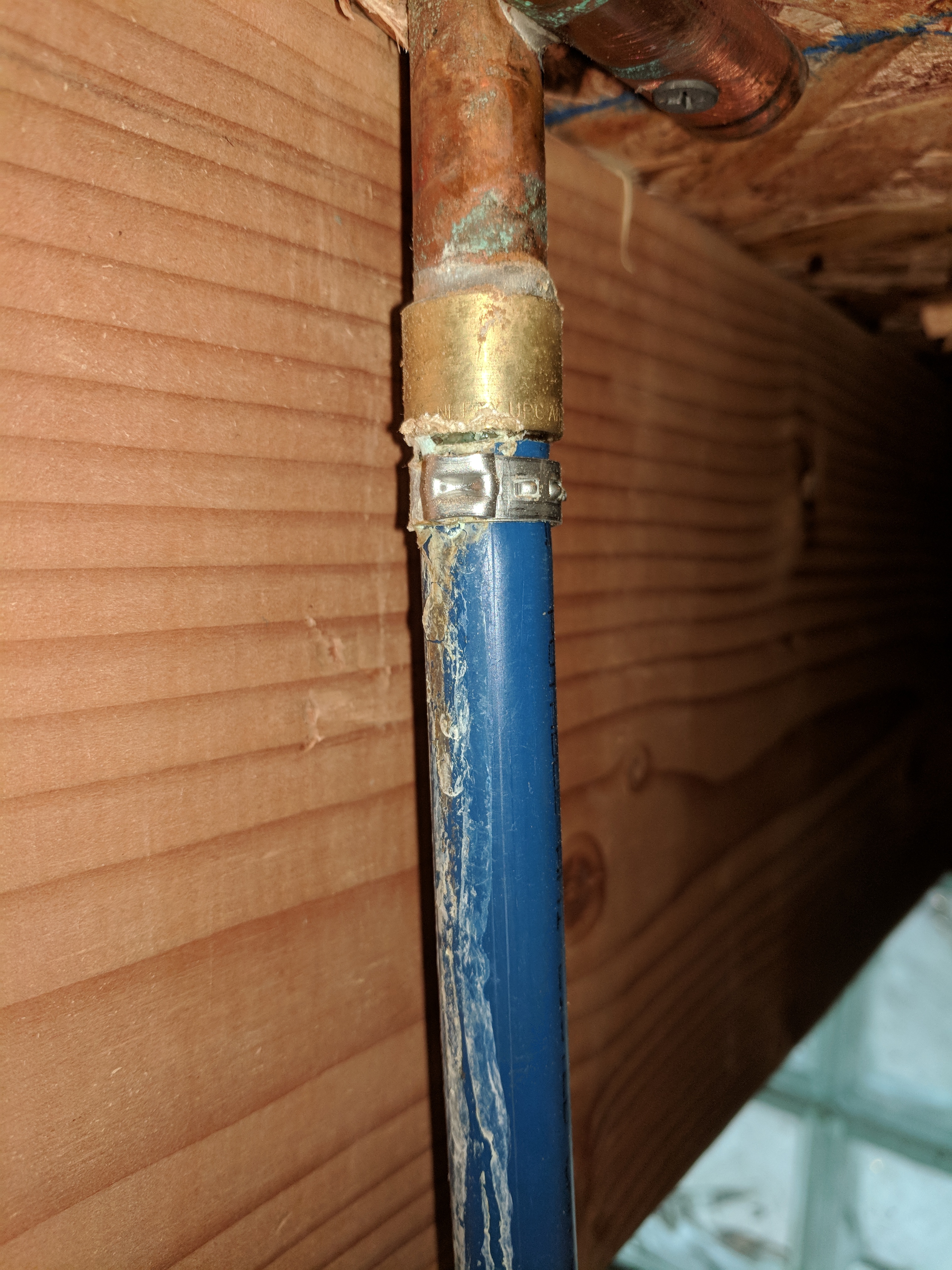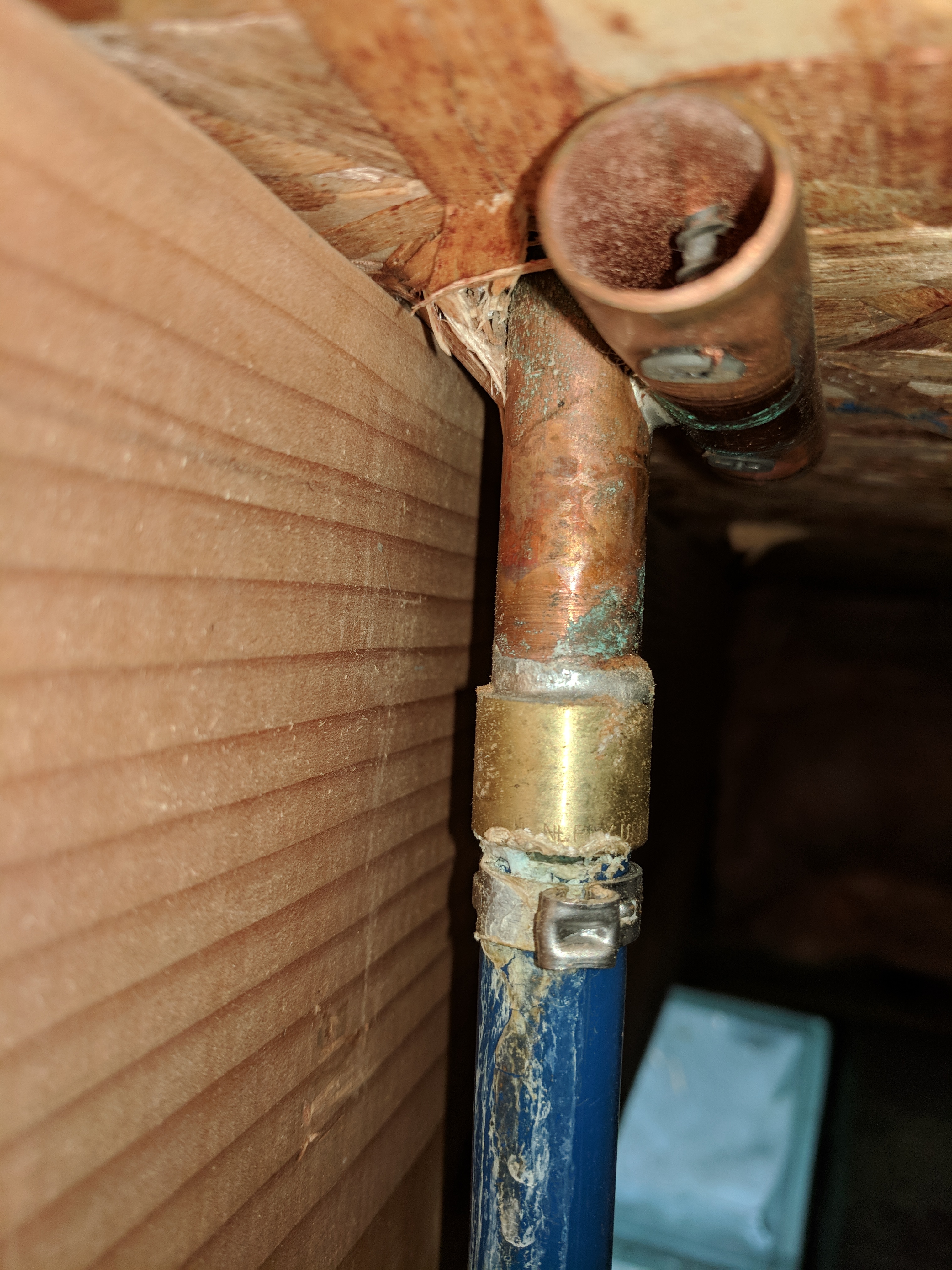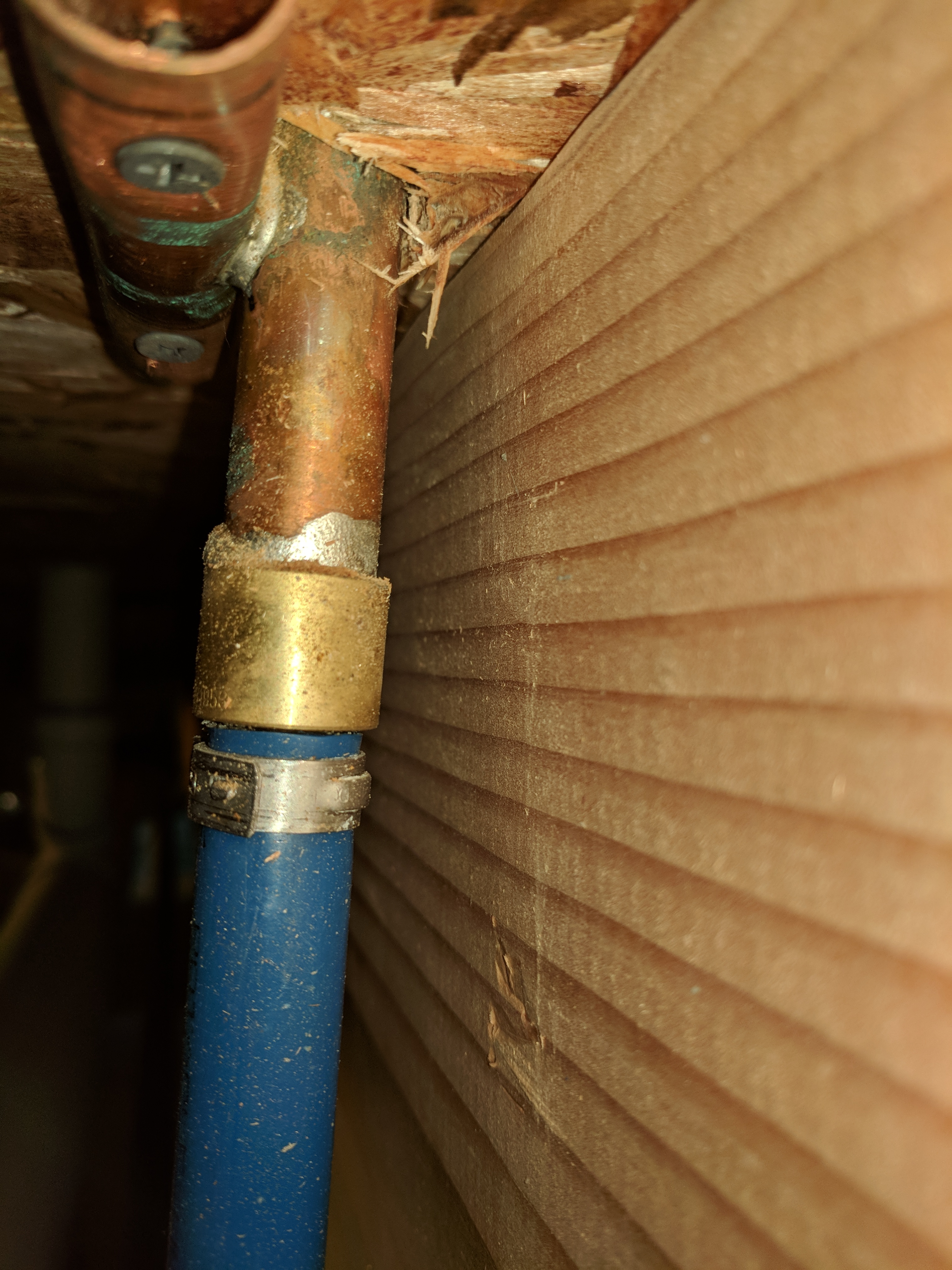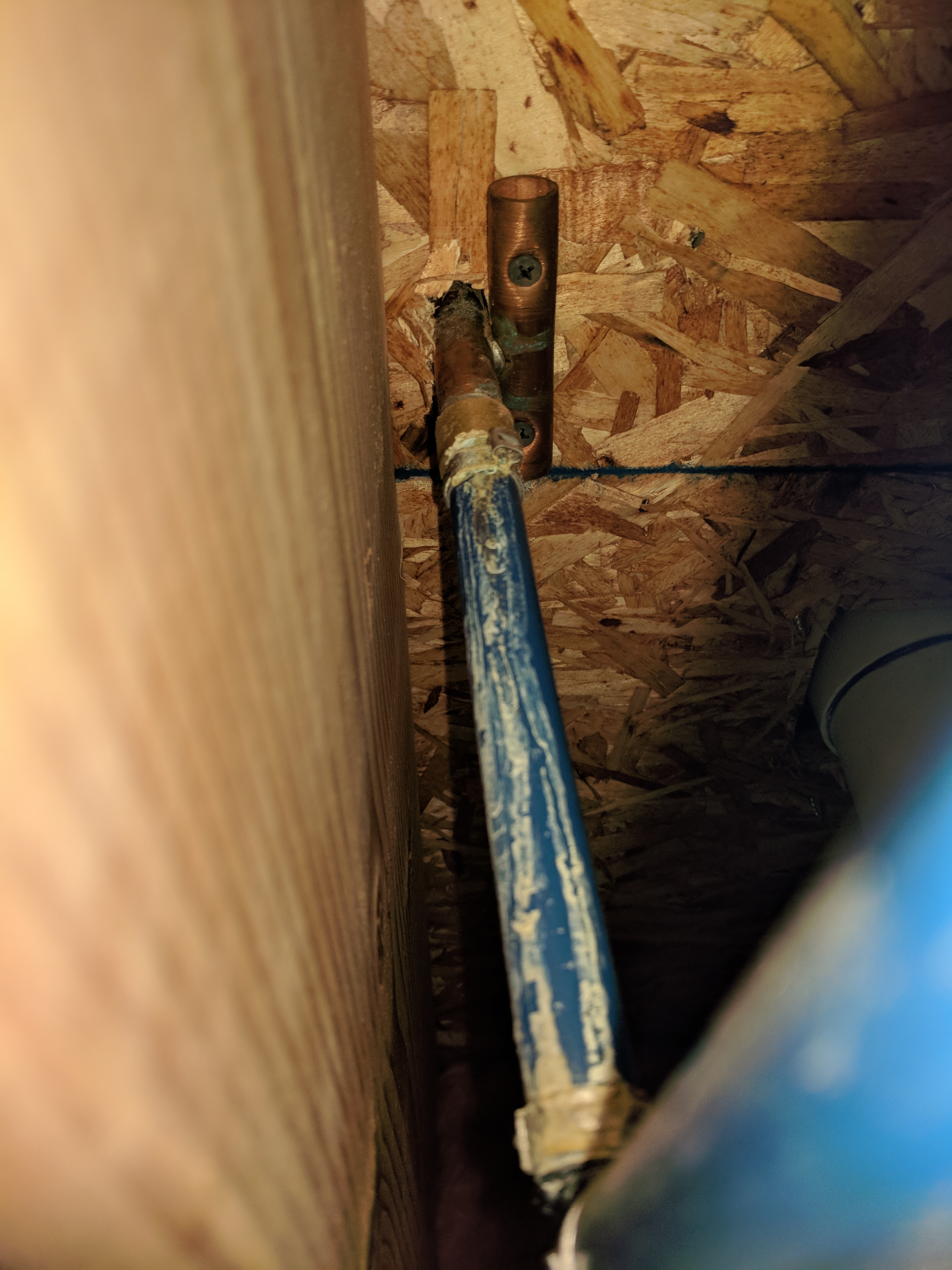Sparty007
Member
- Messages
- 38
- Reaction score
- 0
- Points
- 6
Hey everyone thanks in advance for some guidance. This is a new construction house built in 2014 with an unfinished basement (these pictures are of the PEX in the basement going to a first floor toilet).
I'm about to start finishing the basement (drywall ceiling) so I have been spending quite a bit of time cleaning up and examining everything that will be soon covered up with drywall.
I noticed what appeared to be streaks down this pipe and wondered if it is corrosion or an older leak - but I have not seen any water on the floor ever.
Any thoughts on what this could be or if I should have a plumber re-do that connection?
Thanks
-Ryan




I'm about to start finishing the basement (drywall ceiling) so I have been spending quite a bit of time cleaning up and examining everything that will be soon covered up with drywall.
I noticed what appeared to be streaks down this pipe and wondered if it is corrosion or an older leak - but I have not seen any water on the floor ever.
Any thoughts on what this could be or if I should have a plumber re-do that connection?
Thanks
-Ryan




